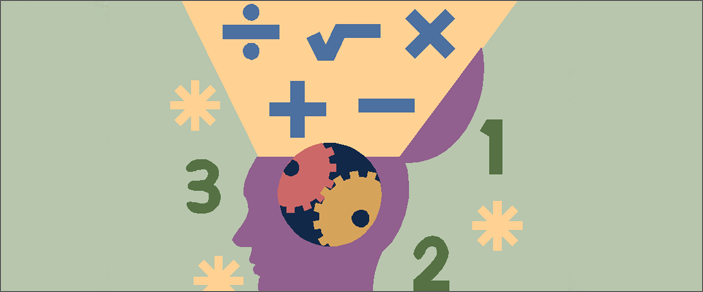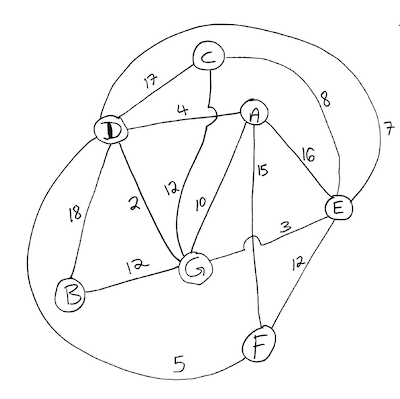Basic Mathematics for Data Science (Part 2)

Sample article displaying basic mathematics concepts.
Basic Mathematics for Data Science (Part 2)
3) Linear Algebra

Have you ever wondered how Facebook suggests friends or how Netflix always recommends movies tailored to your taste? These are examples of recommendation systems that use various algorithms to analyze user data and preferences in order to provide personalized suggestions.
Here, we will apply linear algebra to dive deeper into understanding how machine learning algorithms work with data streams. This knowledge is essential for data scientists to analyze and process data in great detail.
Let’s explore the fundamental concepts of linear algebra that you need to understand:
- Basic properties of matrices and vectors: scalar multiplication, linear transformations, transposition, adjugate, etc.
- Matrix multiplication rules and various algorithms, matrix inversion.
- Special matrices: square matrices, ideas of sparse and dense matrices, unit vectors, symmetric matrices, identity matrices, and more.
- Matrix factorization techniques: LU decomposition, Gaussian and Gauss-Jordan elimination, solving linear equations (Ax = b).b
- Basis of vector spaces, orthogonality, least squares.
- Eigenvalues and eigenvectors in matrices, diagonalization, Singular Value Decomposition (SVD).
How is this knowledge applied?
All neural network algorithms use linear algebra techniques to represent and manipulate network structures and train data. Linear algebra is also applied in image processing and real-world data manipulation.
Where can you learn this?
- Linear algebra: foundations to frontiers - edX: https://courses.edx.org/courses/course-v1:UTAustinX+UT.5.05x+2T2017/course/
- Mathematics for Machine Learning: Linear Algebra - Coursera: https://www.coursera.org/learn/linear-algebra-machine-learning
- Python cho Đại số Tuyến tính - Machine learning Cơ bản: https://fundaml.com/course/5990a766cdc6e32b3b4d0666/intro
- Kiến thức về Đại số Tuyến tính cũng được đề cập kết hợp quiz + assignment để kiếm tra kiến thức tại Week một khoá Machine Learning - Coursera: https://www.coursera.org/learn/machine-learning
4) Calculus

Calculus is often a daunting subject for students studying in the fields of Science and Engineering as well as Economics. Nevertheless, no matter how intimidating it may seem, calculus plays a vital role in Machine Learning and Data Science.
Calculus is the foundation for fundamental analytical solutions, such as Linear Regression. Moreover, when building a machine learning algorithm to analyze and predict data hypotheses, calculus is crucial for finding the minimum error of the model and optimizing model accuracy.
These are some of the basic concepts you need to grasp:
- Knowledge of one-variable functions, limits, continuity, differentiation.
- Mean value theorems, different indeterminate forms, L’Hôpital’s rule.
- Maximum and minimum values of functions.
- Product rule, Chain rule
- Taylor series, sum/integration of infinite series.
- Fundamental theorems and average value theorems of definite and indefinite integrals.
- Gamma and Beta functions.
- Knowledge of multivariable functions, limits, continuity, partial derivatives.
- Basic concepts of differential equations.
How is this knowledge applied?
Have you ever wondered how the Logistic Regression algorithm works? It uses a method called “Gradient Descent” to find the minimum loss function. To understand how it operates, you need to know concepts related to gradients, derivatives, function limits, and chain rules. By comprehending these, you can get a better grasp of how the algorithm works and can optimize it effectively.
Logistic Regressionn Reference: https://machinelearningcoban.com/2017/01/27/logisticregression/
Where can you enhance your knowledge of calculus?
- Pre-university calculus - edX: https://www.edx.org/course/pre-university-calculus
- Calculus I - Khan Academy: https://www.khanacademy.org/math/calculus-1
- Mathematics for machine learning: Multivariable calculus - Coursera: https://www.coursera.org/learn/multivariate-calculus-machine-learning
5) Discrete Math

Data Science nowadays relies heavily on computational systems, and Discrete Math is at the core of these systems.
Discrete Math includes vital concepts that are essential for everyday use of algorithms and data structures in analytical projects:
- Learning about counting principles, combinations, etc.
- Understanding basic proof techniques.
- Essential concepts of logic, induction, and propositions.
- Grasping basic data structures: stacks, queues, graphs, arrays, hash tables, trees.
- Fundamental graph concepts and applications.
- Recurrence relations
How is this knowledge applied?
For example, when analyzing social media user behavior, you can model the data as attributes in a graph structure. You might need to study the fastest algorithms to search and traverse nodes in a graph, which Discrete Math helps with. Understanding different complexities of algorithms for various spaces and times will aid you in selecting the appropriate algorithm for your problem.
Where can you learn Discrete Mathematics?
- Introduction to Discrete Mathematics for Computer Science Specialization - Coursera: https://www.coursera.org/specializations/discrete-mathematics
- Master discrete mathematics: sets, math logic, and more - Coursera: https://www.udemy.com/master-discrete-mathematics/
- Introduction to Mathematical Thinking - Coursera: https://www.coursera.org/learn/mathematical-thinking
Note: I have successfully applied for Financial Aid for the “Introduction to Mathematical Thinking” course on Coursera. If you need more information, feel free to reach out to me.
Conclusion
Becoming a Data Scientist is a long journey of learning and developing both knowledge and mindset. You will find that moving from a problem to practical applications is always a significant challenge. Moreover, it comes with a great deal of responsibility when you are entrusted with a business’s success. This is because making even a small mistake can pose a significant risk.
Never stop asking questions and strive to apply your knowledge to find the most suitable and optimal solutions. In the current integration phase of Vietnam, opportunities are within your reach if you put in the effort.